Hotel occupancy continues to grow steadily, and the industry keeps adding rooms and new brands to answer the demand. But even though travelers need the accommodations, hotels have to offer new services and amenities to attract guests to their property over a competitor’s. Here’s a look at some of the emerging hotel trends for 2015:
Technology
 While airline travel has utilized mobile technology for some time – apps to check in, electronic boarding passes, mobile seat selection and baggage options – hotels are just beginning to develop electronic applications to make the traveler experience more efficient. Some Starwood and Hilton hotels have begun using electronic check in kiosks to speed the check in process. Starwood has also developed an app for its Preferred Guests loyalty club members that will let your smartphone unlock your room door. It’s currently only available at a few locations, but plans are to implement at W Hotels, Aloft and Element brands this year. In the future, apps to allow guests to request a specific floor, preset lighting and temperature in the room or order room service for delivery upon arrival could be commonplace.
While airline travel has utilized mobile technology for some time – apps to check in, electronic boarding passes, mobile seat selection and baggage options – hotels are just beginning to develop electronic applications to make the traveler experience more efficient. Some Starwood and Hilton hotels have begun using electronic check in kiosks to speed the check in process. Starwood has also developed an app for its Preferred Guests loyalty club members that will let your smartphone unlock your room door. It’s currently only available at a few locations, but plans are to implement at W Hotels, Aloft and Element brands this year. In the future, apps to allow guests to request a specific floor, preset lighting and temperature in the room or order room service for delivery upon arrival could be commonplace.
In-room technology will also continue to advance. High-definition flat-screen TVs are the norm in most U.S. hotels. The use of touchscreen controls for TV, curtains and lighting is growing, especially in upscale hotels. Other tech-savvy amenities might include alarm clocks that wake with light rather than sound, and light sensors built into the floors to guide nighttime trips to the bathroom.
Wi-Fi charges are thankfully fading into the past as fewer hotels charge for internet services. Intercontinental, Hilton, Hyatt and Starwood all now offer free basic Wi-Fi, although premium Wi-Fi with faster speeds incurs a fee.
Sustainability
 As the social consciousness of how travel impacts the environment is raised, people often choose to do business with environmentally responsible brands. A recent survey by Deloitte found 95% of business travelers believe the hotel industry should be undertaking ‘green’ initiatives. The good news is that U.S. hotels have recognized the social (and fiscal) benefits from environmentally responsible practices for a decade and have widely implemented many green initiatives:
As the social consciousness of how travel impacts the environment is raised, people often choose to do business with environmentally responsible brands. A recent survey by Deloitte found 95% of business travelers believe the hotel industry should be undertaking ‘green’ initiatives. The good news is that U.S. hotels have recognized the social (and fiscal) benefits from environmentally responsible practices for a decade and have widely implemented many green initiatives:
- Water Conservation – water-efficient toilets and shower heads, water recycling systems and rainwater storage tanks
- Energy Conservation – low-energy light bulbs, linen reuse alternatives
- Waste Management – Green key cards, recycling bins in rooms, soap and shampoo dispensers, soap recycling programs, composting food waste
Hilton has just announced a new “Meet with Purpose” program that will provide meeting planners with sustainable choices to include in their events, such as paperless registration and managing climate control. The hotel industry will continue these practices because 1) they’re good for the environment, 2) they matter to guests, and 3) they save the companies big money. Hopefully, their motivations lie in that order!
Healthy Options

Health and wellness on the road is important to many business travelers. Keeping up with fitness routines helps improve energy levels and focus, and after eight hours of seated meetings you just need to move! To help, many hotels offer gyms with weight training and cardio equipment, but some Omni Hotels now offer “Get Fit Rooms” with in-room treadmills. Sheratons offer free workout kits, group exercises and online fitness classes. Westin Hotels takes the training outside by offering guests maps of local jogging/walking routes designed by Runner’s World Magazine and in some locations a Running Concierge who leads three-mile group runs. Look for more hotels to offer engaging options for getting your blood flowing.
In its annual report, Spa Finder found that “The trend toward more nutritious, diet-customized, farm-sourced food and beverage at hotels is also heating up.” More vegan, vegetarian and gluten free options are on hotel menus. Healthy “grab-and-go” options are appearing and Marriott is testing a healthy vending machine concept in Chicago. The Farm-to-Table culinary obsession has not slowed so hotels are jumping on the turnip truck, which also supports Buy-Local sustainability initiatives – a win/win/win.
Lifestyle Focus
 Hotels consciously design their properties and amenities to attract certain user types. Women make up a little over a third of business travelers and some hotels realize that they have unique needs and concerns. Thus the advent of women-only hotel floors that provide added security and pampering perks for ladies. Wyndham Boca Raton and Crown Plaza Washington, DC are two that have women-only floors.
Hotels consciously design their properties and amenities to attract certain user types. Women make up a little over a third of business travelers and some hotels realize that they have unique needs and concerns. Thus the advent of women-only hotel floors that provide added security and pampering perks for ladies. Wyndham Boca Raton and Crown Plaza Washington, DC are two that have women-only floors.
The coming of age of the millennial generation has brought a whole new sensibility to travel – one that hoteliers want to capture. In the next decade, this age group will represent up to 75% of the work force and be the biggest customer segment for hotels. This younger demographic values interaction and experiences, so brands like Aloft offer them open concept lobbies with communal work, play and eating spaces where solo travelers can mix and mingle with others.
Business travelers have mobile office needs and tend to carry multiple mobile devices. Hotels that cater to them are upgrading rooms with multiple outlets, multi-device chargers and iPod docks, and offer HDMI cables available on loan. And of course, from the traveler’s perspective, a hotel can never have too much internet bandwidth!
Covington’s expert travel advisors can recommend a hotel that meets your purpose and personality – whether is business or vacation, luxury or budget. Contact us for all your hotel needs.

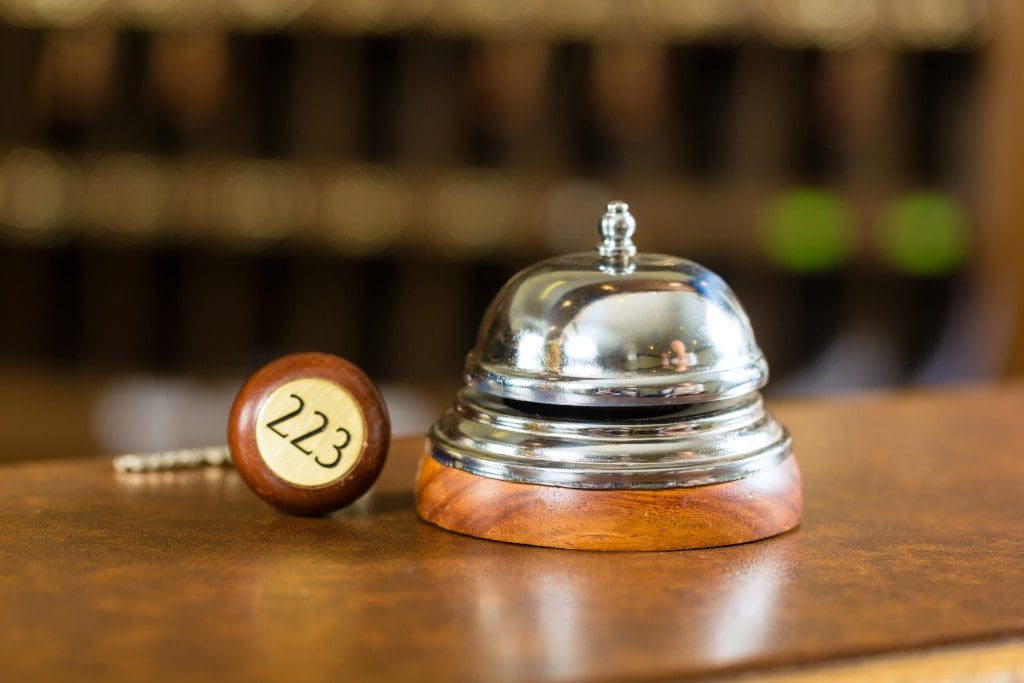


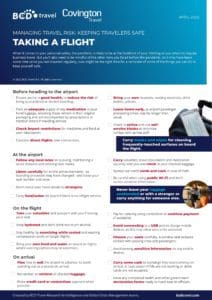
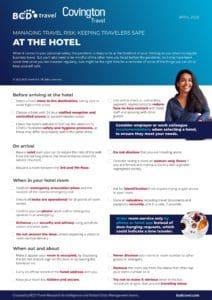
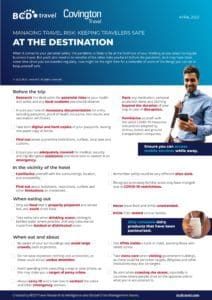
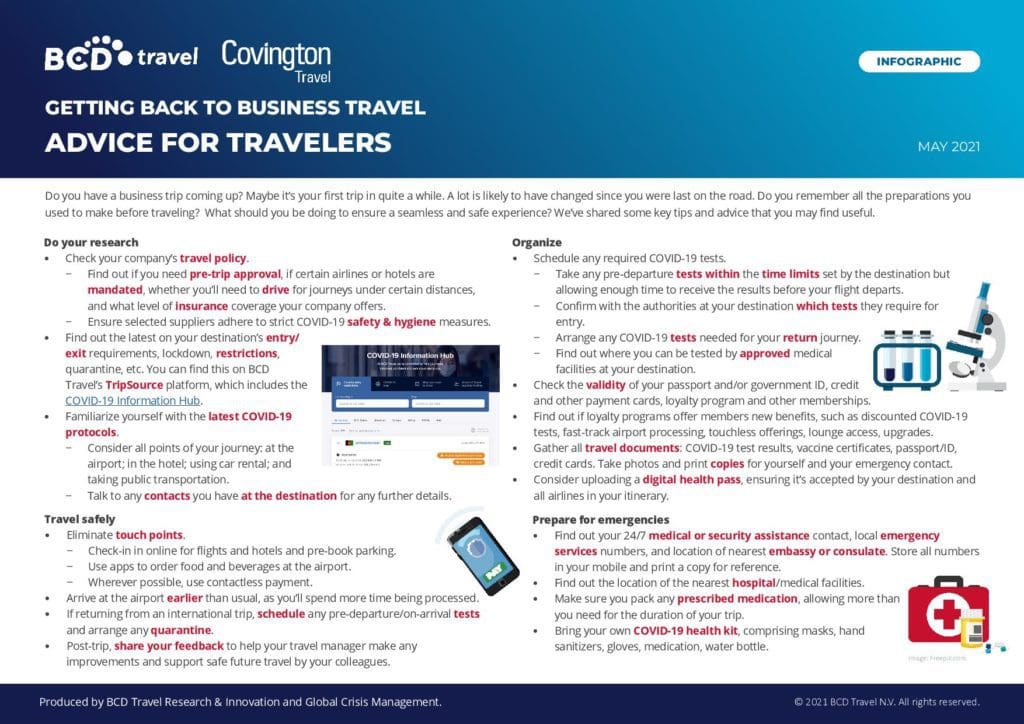
Leave a Reply